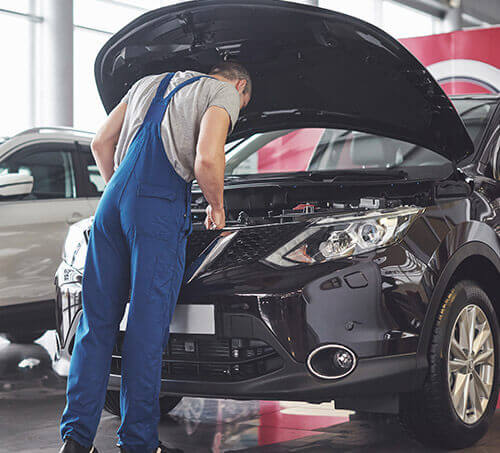When your transmission starts acting up, you might wonder if repairs differ for automatic and manual transmission systems. While both types keep your car moving, they have different components and repair processes. Here’s what drivers need to know.
Quick Answer
Manual transmission repairs often involve clutch components and gear synchronizers, while automatic repairs focus on complex hydraulic systems, solenoids, and torque converters. Automatic repairs tend to be more expensive and labor-intensive.
Manual Transmission Repairs
Key Components:
- Clutch disc and pressure plate
- Throwout bearing and pilot bearing
- Synchronizers and shift forks
Common Repairs:
- Clutch replacement
- Shift linkage or cable adjustments
- Bearing or synchronizer replacements
Labor Costs:
- Typically 4–8 hours for clutch repairs or synchronizer replacements
- Generally lower cost than automatic repairs due to simpler design
Automatic Transmission Repairs
Key Components:
- Torque converter
- Hydraulic valve body and solenoids
- Planetary gear sets and clutch packs
Common Repairs:
- Fluid leaks and pan gasket replacements
- Solenoid or sensor replacements
- Complete rebuilds for worn clutches and bands
Labor Costs:
- 8–12 hours for major rebuilds
- Higher due to complexity and precise hydraulic/electronic calibration
Cost Differences Between Automatic and Manual Repairs
- Manual Transmission Repairs: $1,200–$3,000, usually driven by clutch or synchro wear
- Automatic Transmission Repairs: $3,500–$7,500, driven by internal clutch/band wear, valve body issues, and electronics
Why Automatic Repairs Often Cost More
- Automatic transmissions have hundreds of precision parts and complex hydraulic circuits.
- Diagnosing issues requires specialized scan tools and experience.
- Even minor repairs often require partial disassembly and reprogramming.
When to Choose Rebuild vs. Replacement
- Manuals: Rebuilding usually involves replacing the clutch and worn synchronizers. Full replacements are rare except for catastrophic failure.
- Automatics: Severe internal damage or high mileage often calls for replacement with a remanufactured unit, as rebuilds can be more expensive.
FAQs: Automatic vs. Manual Transmission Repairs
Q: Which transmission type lasts longer—manual or automatic?
A: Manuals typically last longer with proper use because they have fewer moving parts. Automatics, though, are easier to drive and more forgiving for most drivers.
Q: Can I repair my own manual transmission?
A: Experienced DIYers can handle clutch replacements and basic repairs. Automatic repairs usually require specialized equipment and knowledge.
Q: Why does my automatic transmission need reprogramming after repairs?
A: Modern automatics rely on electronic control units (ECUs) that must be calibrated after repairs for smooth shifting and performance.
Q: Is fluid maintenance more important for automatics?
A: Yes. Automatic transmissions depend on clean, high-quality fluid for hydraulic pressure and cooling. Manual fluid changes are also important, but less frequent.
Q: Are automatics always more expensive to repair?
A: Typically, yes—labor and parts for automatic transmissions are more costly. However, repair costs also depend on vehicle make and model.
With over 10 years of hands-on experience in the automotive industry, including serving as General Manager for a high-volume transmission shop, Tom Christy brings deep operational and technical expertise to every facet of auto repair and service management. Having overseen multi-million-dollar operations, led national teams, and improved shop performance across sales, staffing, and customer service, Tom has a proven track record of growing revenue while reducing costs. Tom's real-world experience in transmission diagnostics, repair workflows, and customer satisfaction makes them a trusted voice in the field.



 Free Customer Towing Service
Free Customer Towing Service  Free TrueTest™ Inspection
Free TrueTest™ Inspection  Fast Transmission Services
Fast Transmission Services  Comprehensive Warranty in Denver
Comprehensive Warranty in Denver 

























